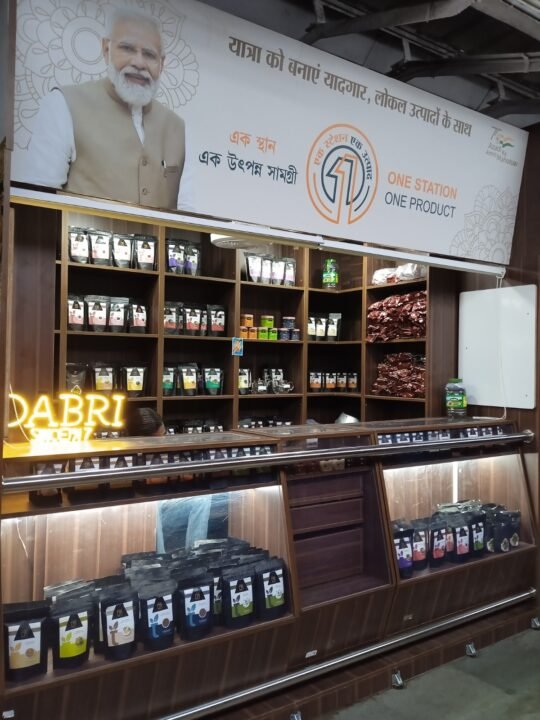HT Bureau
GUWAHATI, July 28: Indian Railways has introduced the ‘One Station One Product’ (OSOP) scheme with the aim of promoting the ‘Vocal for Local’ vision of the government of India. The scheme aims to provide a market for local and indigenous products, while also creating additional income opportunities for marginalised sections of society.
Under the OSOP scheme, railway stations offer specially designed stalls by the National Design Institute to showcase and sell indigenous and local products. These products include handicrafts, textiles, handlooms, toys, leather goods, traditional appliances, garments, gems, and jewellery made by local artisans, weavers, craftsmen, and tribes. Additionally, locally made and grown food products are also featured.
The scheme prioritises individuals from marginalised and weaker sections, as well as self-help groups. Stalls are allotted for periods ranging from 15 days to 3 months, with a nominal registration fee for participation.
Various categories of individuals and groups, including individual artisans, craftsmen, weavers, tribals, farmers, members of self-help groups, and those associated with registered micro-enterprises and social organisations, can benefit from the OSOP scheme.
As of July 6, 2023, the North East Frontier Railway (NFR) jurisdiction has 122 OSOP outlets operating across 86 railway stations. These outlets showcase and market a diverse range of locally manufactured products. Major stations like Guwahati, Dibrugarh, New Tinsukia in Assam, New Alipurduar, and New Jalpaiguri in West Bengal feature a variety of Assamese pitha, traditional gamosa, Rajbongshi dress, japi, local textiles, jute products, handloom, Darjeeling tea, designer bangles, and other local food products, which have caught the attention of passengers.
The OSOP scheme was launched as a pilot project on March 25, 2022 and has now expanded to cover 782 railway stations with 850 OSOP outlets in 21 states and 3 union territories across the country. The scheme plays a crucial role in promoting local and indigenous products while empowering local communities and strengthening the ‘Vocal for Local’ initiative.











